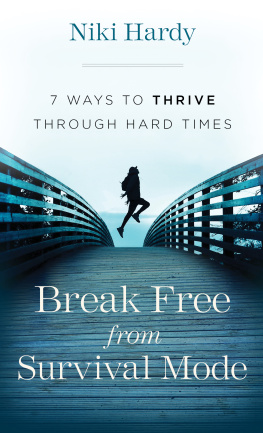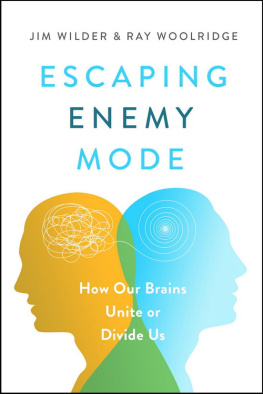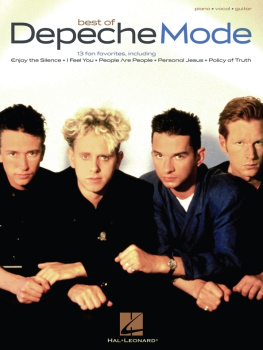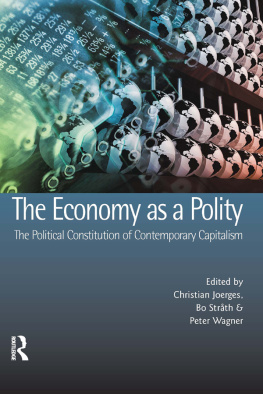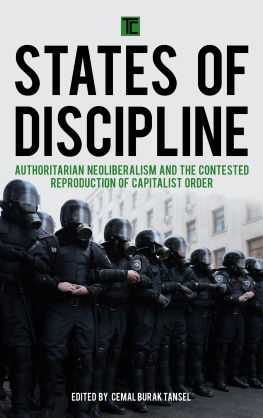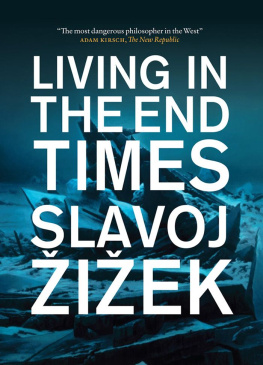Contents
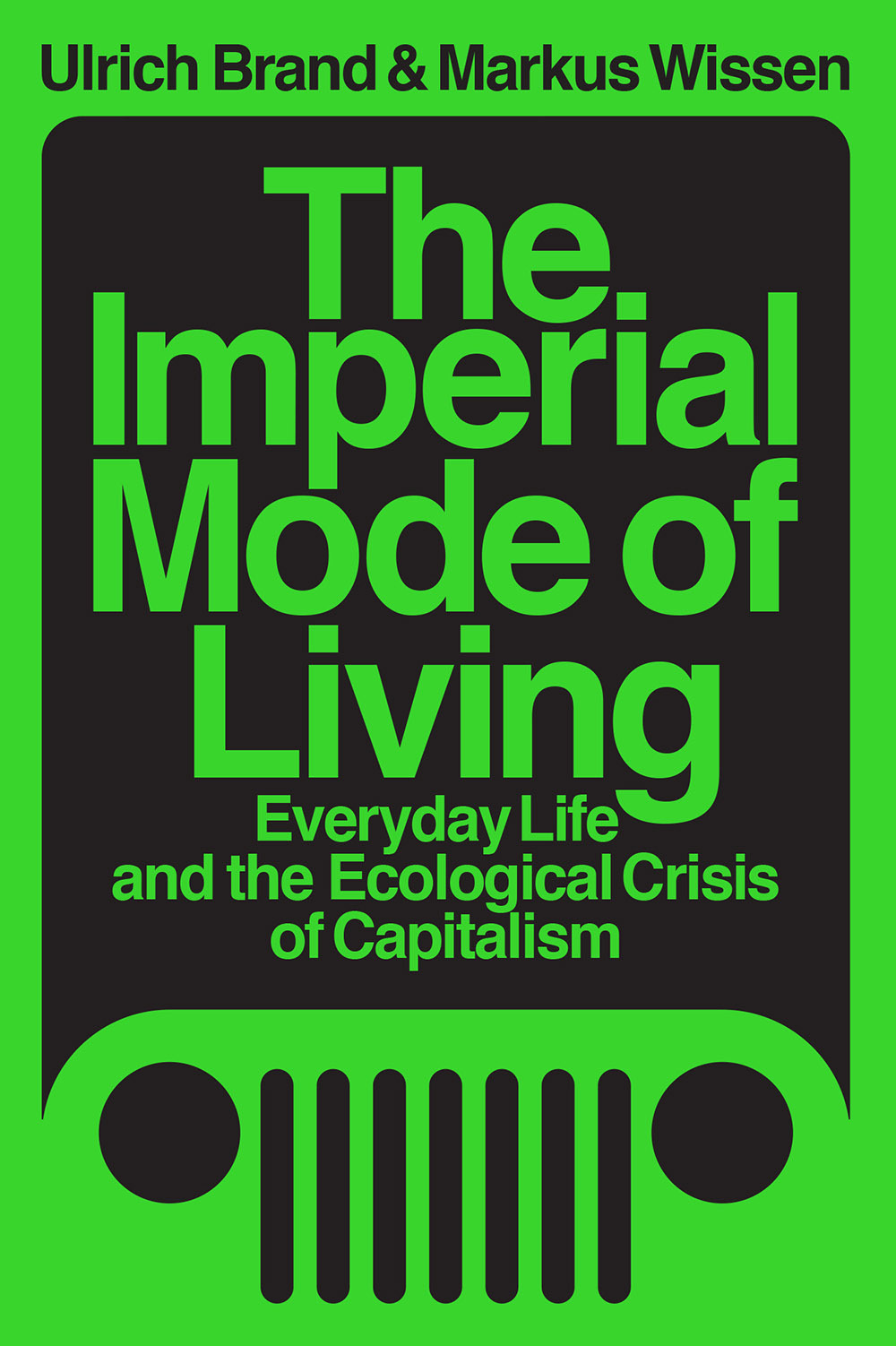
The Imperial Mode of Living
The Imperial Mode of Living
Everyday Life and the
Ecological Crisis of Capitalism
Ulrich Brand and Markus Wissen
Foreword by Liliane Danso-Dahmen
Translated by Zachary Murphy King
Edited by Barbara Jungwirth
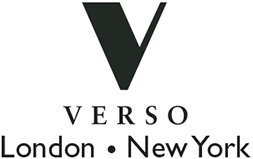
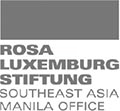
First published in English by Verso 2021
Originally published in German as Imperiale Lebensweise. Zur Ausbeutung
von Mensch und Natur im globalen Kapitalismus , Oekom Verlag 2017
Ulrich Brand & Markus Wissen 2021
Translation Zachary Murphy King 2021
Foreword Liliane Danso-Dahmen 2021
All rights reserved
The moral rights of the authors and translator have been asserted
1 3 5 7 9 10 8 6 4 2
Ver
UK: 6 Meard Street, London W1F 0EG
US: 20 Jay Street, Suite 1010, Brooklyn, NY 11201
versobooks.com
Verso is the imprint of New Left Books
ISBN-13: 978-1-78873-912-2
ISBN-13: 978-1-78873-913-9 (UK EBK)
ISBN-13: 978-1-78873-936-8 (US EBK)
British Library Cataloguing in Publication Data
A catalogue record for this book is available from the British Library
Library of Congress Cataloging-in-Publication Data
A catalog record for this book is available from the Library of Congress
Library of Congress Control Number: 2020948694
Typeset in Minion Pro by Hewer Text UK Ltd, Edinburgh
Printed and bound by CPI Group (UK) Ltd, Croydon CR0 4YY
Contents
Writing this book was not only an extremely enriching experience of intensive and friendly scholarly cooperation for us as authors. It was also fuelled by a wave of critical goodwill from many friends and colleagues, to whom we owe our sincere gratitude.
An important milestone in the creation of the book was a workshop in August 2016 at the Rosa Luxemburg Foundation in Berlin. Mario Candeias, Stefanie Graefe, Friederike Habermann, Uwe Hoering, Boris Kanzleiter, Bettina Khler, Tom Kopp, Steffen Khne, Miriam Lang, Christoph Podstawa, Sabine Pongratz, Katharina Phl, Daniela Setton, Silke van Dyk and Christa Wichterich spent several hours with us discussing in depth the drafts of two central chapters, offering supportive resistance and providing just as much criticism as encouragement. The workshop was the initial spark for the final spurt of manuscript production.
Over the past few years, we have received critical questions and important suggestions during presentations and lectures; these helped us consolidate our thoughts and, of course, sowed doubts, because we realized that we could not consider everything in this book. Two workshops, organized by the collective Imperial mode of living and solidary alternatives (ILA), were a highly interesting forum which offered us the opportunity to discuss some of our thoughts. Furthermore, we received important and extraordinarily stimulating comments on specific portions of the manuscript from Gundula Ludwig, Tobias Boos, Alina Brad, Lutz Brangsch, Michael Brie, Ariane Brenssell, Kristina Dietz, Franziskus Forster, Daniel Fuchs, Franziska Kusche, Miriam Lang, Hanna Lichtenberger, Kathrin Niedermoser, Melanie Pichler, Etienne Schneider, Isabella Radhuber, Anke Schaffartzik and Stefan Schmalz.
Ulrich Brand also would like to thank the Institute for Advanced Sustainability Studies in Potsdam (IASS) Mark Lawrence, Sebastian Helgenberger and Falk Schmidt in particular for the opportunity to work on this book as part of a guest residency in the summer semester of 2016. Some of the ideas from this book were presented in a colloquium at the IASS, and many of the participants, especially Boris Gotchev, Sebastian Helgenberger, Kristin Nicolaus and Falk Schmidt, provided important suggestions. Markus Wissen would like to thank the Berlin School of Economics and Law (HWR) for granting a sabbatical that enabled him to work on this book.
For the German edition, Louis Asamoah, Samuel Decker, Franziska Kusche and Carla Noever provided valuable technical assistance in preparing the manuscript; Samuel Decker, furthermore, contributed the idea for the books subtitle. We are grateful to Christoph Hirsch at our German publisher oekom for his gracious support of the project and Laura Kohlrausch for her excellent editing.
Regarding the English edition, we would like to thank all those who engaged in criticizing and advancing our argument after the publication of the book in German: reviewers, interviewers, discussants, those who provided us with their comments. International colleagues gave us the chance to present and discuss the concept: Miriam Lang of the Andean University Simn Bolvar in Quito, Huan Qingzhi of Beijing University, Stefan Aykut and Christoph Bonneuil who organized a conference on the Anthropocene in Paris, Christian Denzin of Friedrich Ebert Foundation Mexico, John Holloway of the University of Puebla, Alejandro Pelfini of the Latin American Faculty of Social Sciences in Buenos Aires, Jorge Rojas of the University of Concepcin and Aaron Tauss of the University of Medelln.
We both benefited very much from being fellows of the Research Group on Post-growth Societies at Friedrich Schiller University Jena. The intellectually highly productive atmosphere created by this group offered us the opportunity to further develop our ideas and at the same time challenged us to sharpen our arguments. Klaus Drre and Stephan Lessenich and other colleagues from the group provided us with extremely valuable feedback; Stephans concept of the externalisation society is a complement to the imperial mode of living. The Research Group organized by Christine Schickert gave us the opportunity to discuss our ideas in two workshops in October 2017 and June 2019. Comments from Emma Dowling, Dennis Eversberg, Timmo Krger, Thomas Seibert, Hans Thie and many others were very helpful. Here, for instance, young scholars like Anna Landherr and Jakob Graf referred productively to our concept in their analysis of Chile. Moreover, we are indebted to Liliane Danso-Dahmen, head of the South East Asian office of in Manila the Rosa Luxemburg Foundation, who facilitated the translation through generous financial support. Furthermore, we wish to thank Zachary King for the translation and Barbara Jungwirth for the careful editing of the text; Valerie Lenikus, Corinna Liedtke and Christopher Beil for their editorial support; and all the people from Verso involved in the publishing Sebastian Budgen, Leo Hollis, Cian McCourt, Duncan Ranslem, Melissa Weiss and John Gaunt for their great support and benevolent patience.
Ulrich Brand and Markus Wissen
ADAC | Allgemeiner Deutscher Automobil-Club (German Automobile Club) |
BBU | Bundesverband Brgerinitiativen Umweltschutz (German Association of Citizens Initiatives for the Protection of the Environment) |
BGR | Bundesanstalt fr Geowissenschaften und Rohstoffe (German Federal Institute for Geosciences and Natural Resources) |
BMBF | Bundesministerium fr Bildung und Forschung (German Federal Ministry of Education and Research) |
BMVI | Bundesministerium fr Verkehr und digitale Infrastruktur (German Federal Ministry of Transport and Digital Infrastructure) |


